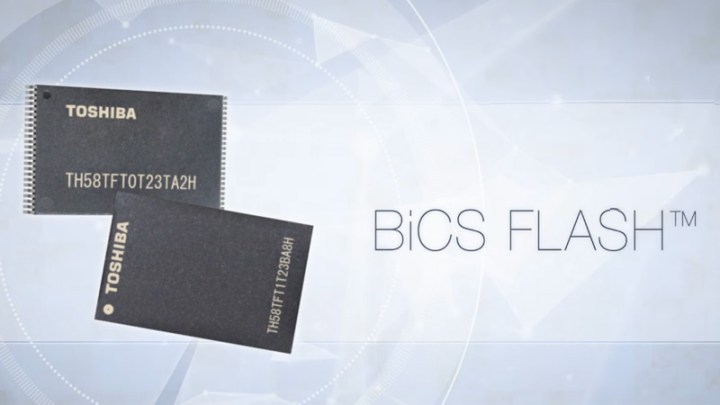
The new Toshiba memory chips, called BiCS3, were announced in July 2016, though only entered limited production with Toshiba partner Western Digital in early February. Much like other 3D memory chips, BiCS3 chips stack the cells vertically, which is what makes them capable of such large-scale storage. The 512Gb chips equate to 64GB of storage space, which could mean larger capacity and smaller form-factor storage solutions in the future.
Although Toshiba isn’t the only company to be developing 3D memory solutions, it’s laying claim to the highest capacity in the smallest footprint. The 64-layer design of BiCS3 chips represents a 65-percent increase in capacity per unit chip over previous 48-layer, 256Gb designs, we’re told.
This has wide-reaching ramifications for the industry, as today flash memory is used in almost every small-form-factor device that requires onboard storage. Smartphones, tablets, solid-state drives, USB drives, games consoles, and other devices all make use of it. Adding greater capacity to single memory chips means we should see greater storage space in future devices, as well as a reduction in their footprint, which in turn leads to smaller, leaner hardware for us all.
Some of the first devices to benefit from these news chips, however, will be Toshiba’s own SSDs. The BGA line will feature 16 of these chips, offering roughly 1TB of storage space, and are expected to see usage in small-scale PCs, as well as lightweight laptops. Samples of these drives will begin shipping out in April, according to Anandtech.



